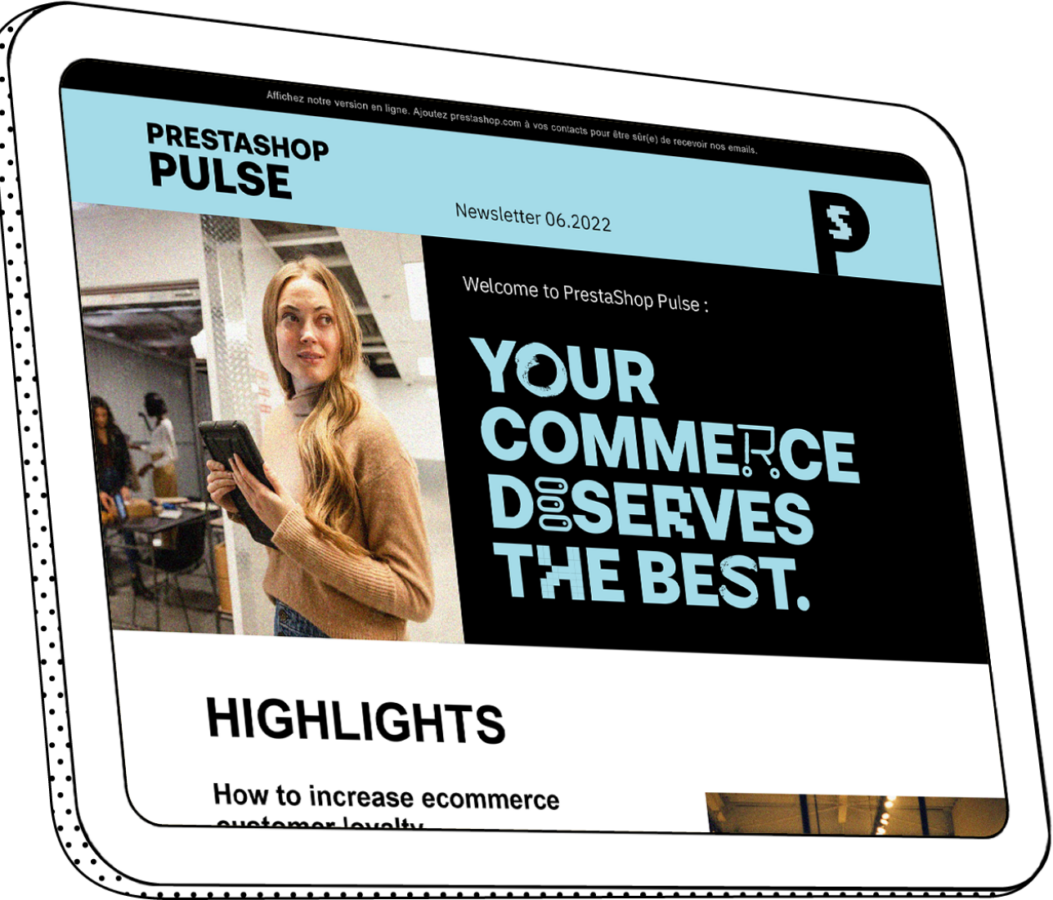Ending the myth about selling online for free
If you landed on this blog post you are probably thinking about ways to create an online store, and wander if you could do it for free. As it has been said by many, “If you are not paying for the product, then you are the product”. So the short answer to the main question here is no, you can’t really create an online store for free – but keep reading to understand the reasons why.
No matter how you decide to build your store, there will always be a cost. Although there are many ways to reduce costs, the solution you pick to launch your online store eventually depends on your business needs.
1. Why you’ll hardly sell online for free
- Hidden costs behind any online store
- Hosting
- Domain
- Processing charges
- Personalization
- Security
2. Popular ways to sell online
- Self-hosted platforms
- Hosted platforms
- Marketplaces
3. Choosing a solution that fits your needs
- Starting a business
- Moving an offline business online
- Growing your online business
Why it’s difficult to sell online for free
The term free is often used to captivate our attention, because who doesn’t like free stuff. When it comes to ecommerce website builders, the term free often has a temporary meaning. You can do free trials for instance, or start for free, but as soon as your business grows and starts getting serious, you will, at some point, need to upgrade the website and switch to a paid plan.
When the website builder itself is free, you might be able to set up a store, but you will soon find out about certain costs that can’t be avoided. The list below may seem overwhelming, but don’t worry, it has never been easier to sell online than today.
These are a few of the hidden costs behind most of the advertised-as-free online store builders:
- Hosting: Some ecommerce CMSs offer hosting plans, but such platforms aren’t free, meaning the hosting is included only if you’re on a paid plan. Otherwise, if the CMS you chose is free to use, you’ll have to get a hosting provider yourself, meaning you will have to pay for it. Your hosting provider is extremely important as its quality can impact the performance and speed of your website, and therefore your business revenue.
- Domain name: As a merchant, you probably don’t want a long and unfriendly name for your website, like janedoe.ecommercecmsname.com/cakesncookies. You’ll have to consider buying a domain name if you want a brand that will easily stick in people's minds via the URL of the website.
- Ecommerce platform payment processing charges : Some ecommerce solutions allow selling products without charging fees up to a certain amount of items in your product catalog. It’s what most SaaS solutions do, if you go for a free-to-use CMS you probably won’t have any extra charges other than those of the payment processing companies.
- Payment processor charges: if your ecommerce platform doesn’t charge your business transactions, the payment processor (PayPal, Klarna, Visa…) will.
- Plugins (or addons): Plugins are additional programs you can add to your site to fill specific needs. For instance, you may want to include the “buy now pay later” payment method, in this case you will need to install a plugin that allows customers to choose this payment method during the checkout.
- Themes: The website theme (or template) is how an online store looks. Most solutions offer free templates but as soon as you want to customize an already existing theme, brand it, or get a fancier one, you will have to consider purchasing one that is suited to the needs of your business.
- SSL integration: This stands for Secure Socket Layer, and it is not only important but necessary for any website. SSL is what allows visitors to start sessions online securely, and for merchants to offer a 100% secure payment experience. You can get free SSL certificates but their validation period is pretty short compared to paid certificates (90 days vs 2 years on average).
As mentioned in the beginning, the maturity of your business and overall needs should determine the best solution to build an online store, not the price of the solution.
Popular online store solutions
Keep in mind there are a lot of ways to sell online today: the following are our top three solutions:
Self-hosted ecommerce solution
Self-hosted solutions can involve very low startup costs and cover most of the basic needs of an ecommerce website. The final cost will depend on factors such as your ease with development or specific design needs. Without any skills for developing a website yourself, the need for an agency may add up to the costs.
As they might appear complicated at first, there are big advantages to choosing self-hosted in the long run: being the full owner of your online store, the ability to customize it exactly as you want and need, and most importantly, the ownership of 100% of the data, so you can bring it with you if you ever decide to migrate to another solution.
Hosted ecommerce solution (often SaaS)
Hosted solutions are easy turnkey solutions, quite customizable, even for beginners. The downside of going for a subscription-based product is similar to the downside of renting a house: you cannot do everything you want freely because you do not own the property. When you rent a property you can’t take the walls with you when you move out. This is more or less the same thing with a hosted solution: if you want to migrate, be prepared for leaving a lot of what you built behind. Whether or not choosing this option is right for you really depends on your ambition and long-run investment.
Marketplaces
Marketplaces are great if you’re not ready to launch your own website. Their biggest advantage is the little amount of work to do. Usually, uploading your catalog to the marketplace of your choice will be almost enough to start selling. While some marketplaces are completely free, some like Etsy or Amazon charge a small fee per transaction. Of course customizing how your brand looks is not possible, and you will have to accept the marketplace’s rules and be dependent on their ecommerce features.
Depending on your company size, the products you want to sell, your budget, and long-term ambitions, you can compare these three options and decide which one suits you best.
Choosing the best option for your business
In order to make an informed choice, you can think in terms of Total Cost of Ownership (TCO). This will help you assess whether it’s worth it to invest short-term (meaning you purchase a solution paid monthly, annually etc.) or long-term (TCO, meaning you own your solution).
“I’m just starting my business and I’m unsure about its long term success”
If you’re new in the ecommerce world, you might want to test the waters before jumping into building an online store from scratch. In this case you can think about selling directly on marketplaces, which often represent no costs. Of course, if you’re ambitious regarding your business, and want a customized site that represents your brand you can try the hosted and self-hosted ecommerce platform options. In this case your choice will depend on:
a) How much you're willing to invest to test your site.
b) Your tech and dev skills/budget in case you go for an open source option.
In a few words, you can try all options below depending on your ambitions and tech skills.
Best options:
- Hosted ecommerce solution - many platforms work with a freemium scheme where you’re able to sell “for free” for a limited amount of products or test the solution for 10-15 days.
- Self-hosted ecommerce solution - this is ideal if you’re comfortable with coding and technical aspects of building a website, you can test your website out with low upfront costs by doing most by yourself and invest further on.
- Marketplaces - It’s easy to run and involves very little costs, some marketplace’s might take a percentage of your sales but it’s ideal if you just want to test your product without investing much in your brand image.
“I already have an offline business but need to start selling online”
In this situation, you’re probably aware of your costs and ROI. The marketplace option isn’t ideal if you want to develop your brand’s image online since you can’t customize anything. Both a hosted or self-hosted ecommerce solution can work, upfront costs will again, depend on the complexity of your project.
Best options:
- Hosted ecommerce solution
- Self-hosted ecommerce solution
Why would we suggest going for self-hosted rather than hosted? Because you’ll be a complete owner of your data, if your offline business works well you might want to own your data in order to keep growing independently of the solution you use.
“I’m an established and growing SMB with an online store but I need a solution to follow my pace”
In terms of ROI, a self-hosted solution is probably the way to go for this scenario. With a self-hosted solution you’ll have control over your store’s evolution as you grow, you can keep up with your growth pace by personalizing every aspect you need (payment methods, design, integrations, and more) The upfront cost of moving to a self-hosted solution will depend on your current website, there’s a migration process and if you work with an agency it’ll add to your costs - but you’ll get a nice job done. Once you’re done migrating you can begin the customization of your new online store and add all it needs. In the long-run this is the most profitable way to sell online if your business is solid, it’s a one-shot big investment - again depending on your needs - for a website that will stay forever.
Best options:
- Self-hosted ecommerce solution
By now, you’ve understood there’s no real way to sell online for free. There’s no one-size fits all solution when it comes to starting an online business, the final solution and cost of your store depends on a lot of variables. There are many ways to build your ecommerce website, and you can also seek help if you need guidance.






